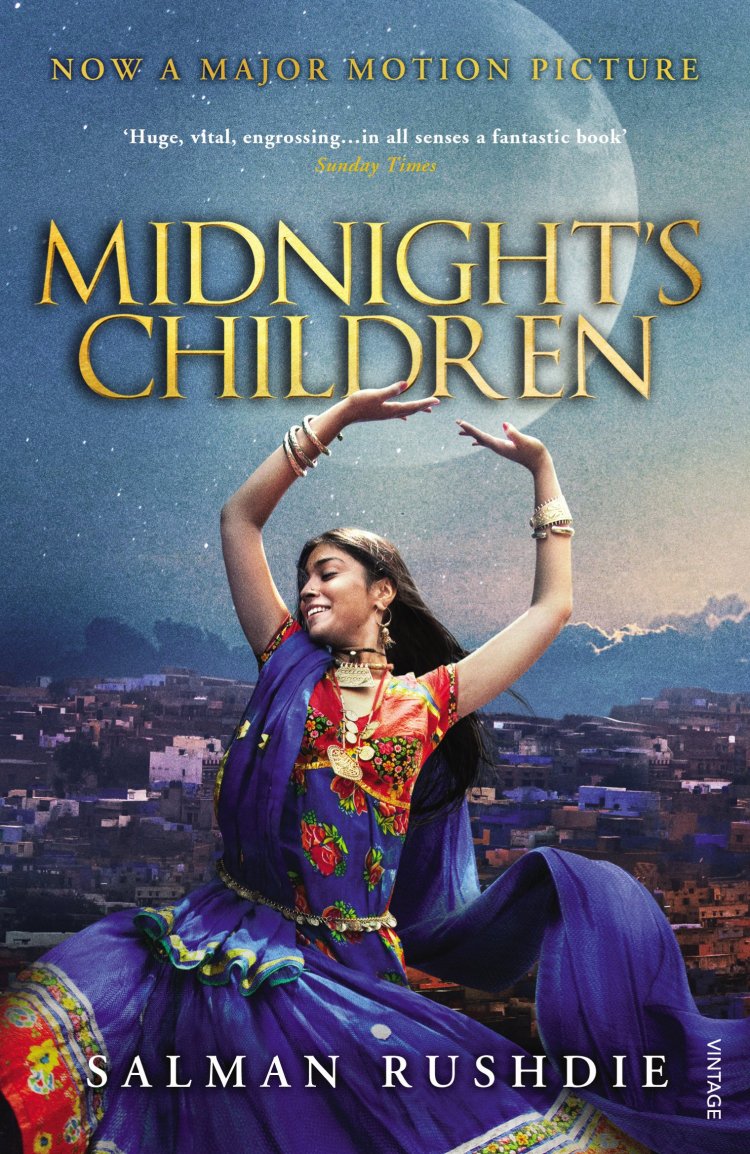Midnight’s Children

Rating: 4.1/5
Author: Salman Rushdie
Paperback: 672 pages
Publisher: Jonathan Cape
Publication Date: 1981
Language: English
Genre: Historiographic Metafiction
ISBN-10: 9780099582076
ISBN-13: 978-0099582076
ASIN: 0099582074
Cost: Rs. 228.96 (Kindle edition)
Plot:
'Midnight’s Children’ by the renowned author Sulman Rushdie is an epic novel that opens up with a child being born at midnight on 15th August, 1947, just at a time when India is achieving Independence from centuries of foreign British colonial rule.
This book narrates the story of Saleem Sinai and the times he lives with the newborn nation.
Divided in three parts, the novel begins with the story of Sinai’s family and the various events that lead to India’s independence and eventually to partition. Born precisely at the midnight, Saleem was born with telepathic powers and later discovers that all the kids born in India between 12 A.M. and 1 A.M. are impregnated with the special power.
Using his telepathic powers, he assembles a conference with all kids to reflect upon the issues like culture, linguistic, religion and political differences to shape the nation. Highlighting the relation between father and son and a nation, it is an family adventure with lots of dramatic and shocking elements.
Review:
The book portrays beautifully: the diverse culture in India. Its constitution recognizes twenty-two official languages, and the population practices religions as varied as Hinduism, Islam, Christianity, Sikhism, and Buddhism, among many others.
The protagonist, Saleem Sinai was born at the dawn of Indian independence and destined, upon his death, to break into as many pieces as there are citizens of India. Saleem represents the entirety of India within himself. If one talks about a rather alluring concept in the book; it’s the relationship between Saleem’s private and public life suggesting that public and private will always influence one another.
Saleem’s character stands in the stark contrast with the protestors. While Saleem stands for multiplicity, not contained or concerned to one particular idea of culture, while the protestors demand their own language-based region.
Saleem notices that one’s memories and narratives originates their own truth. Religious texts and history books claim their truth because not only are they supported by facts but also because they have been accepted widely with passing time and people’s unshaken faith.
The battle between Saleem and Shiva reflects the ancient, mythological battle between the creative and destructive forces in the world. The reference to Shiva, the Hindu god of both destruction and procreation, reflects not only the tension between them but also the duality being together between them.
Throughout the novel, Saleem makes effort to incorporate the wide culture and values of different kinds within him aligned with his personal storyline.
Adaptations:
Director Deepa Mehta collaborated with Salman Rushdie on a new version of the story, the film Midnight's Children, The film was premiered in September 2012 at the Toronto International Film Festival and the Vancouver International Film Festival.
Milestones of the Book:
- Midnight's Children won both the Booker Prize and the James Tait Black Memorial Prize in 1981.
- It was awarded the "Booker of the Bookers” Prize and the best all-time prize winners in 1993 2008 to celebrate the Booker Prize 25th and 40th anniversary.
- In 2003, the novel was listed on the BBC's The Big Read poll of the UK's "best-loved novels".
- It was also added to the list of Great books of the 20th century.
About the Author:
Of Indian origin, Sir Ahmad Salman Rushdie born on 18 June, 1947 is one of the best living writers in English. Combining historical fiction with magical realism, Rushdie has been courting controversy ever since Midnight's Children was published in 1981. The novel went onto win the Booker Prize. The Satanic Verses, his fourth novel published in 1988, was banned in India and many Islamic countries. Facing several death threats, the author was granted protection in England. He moved to USA in 2000, where he currently lives.















































